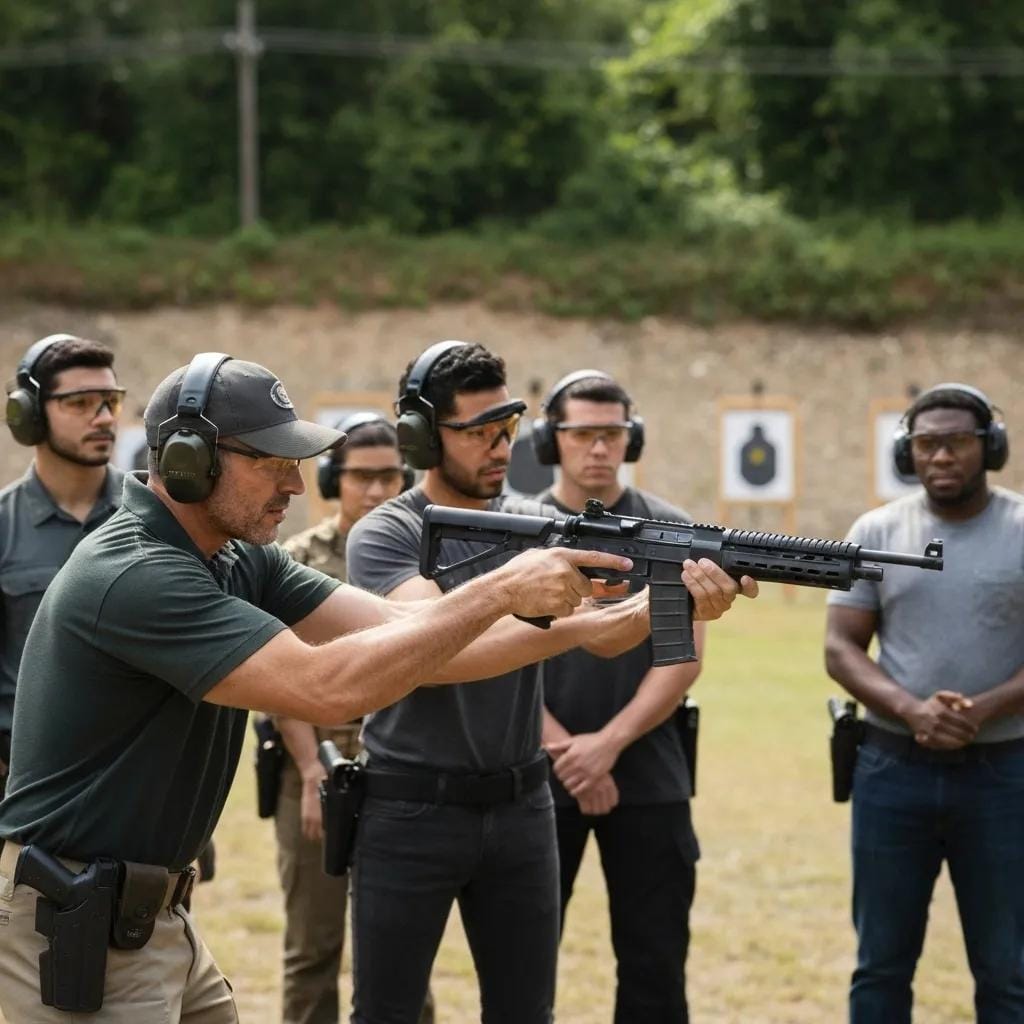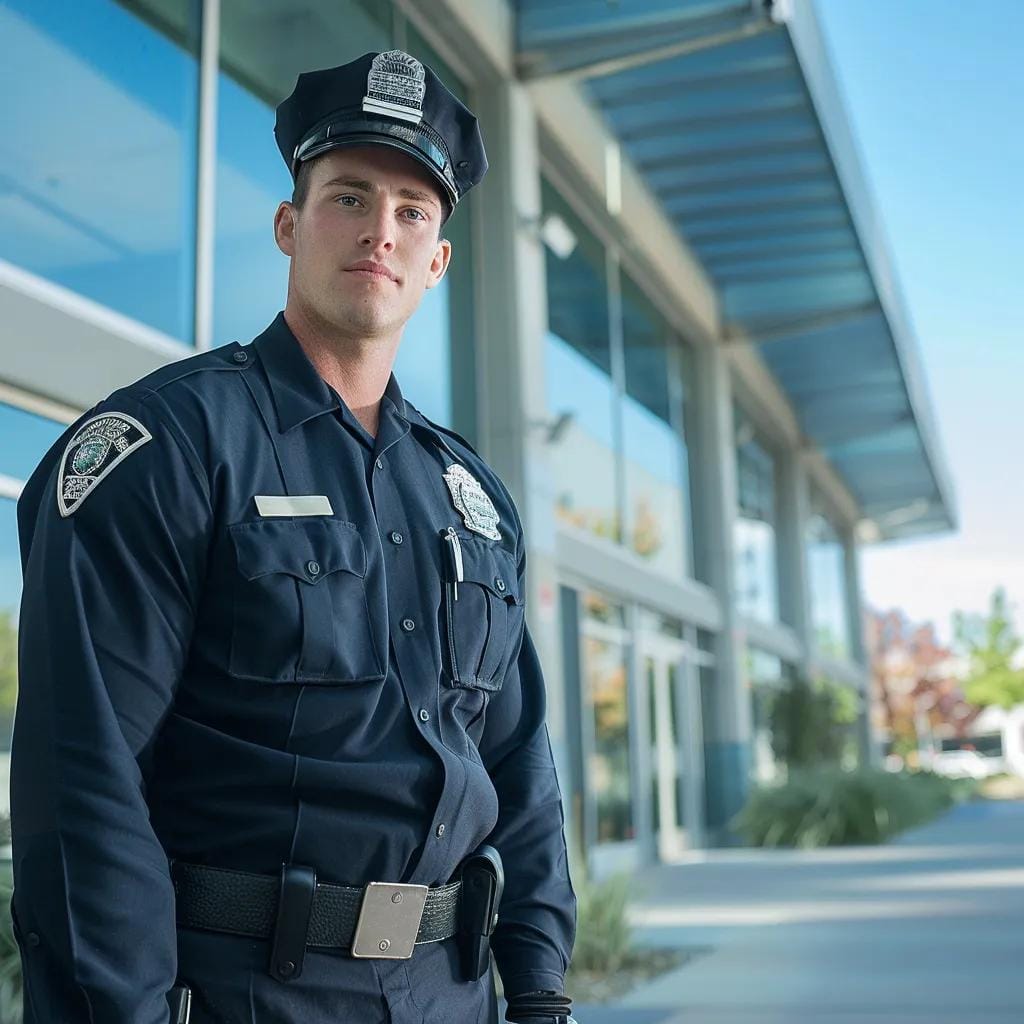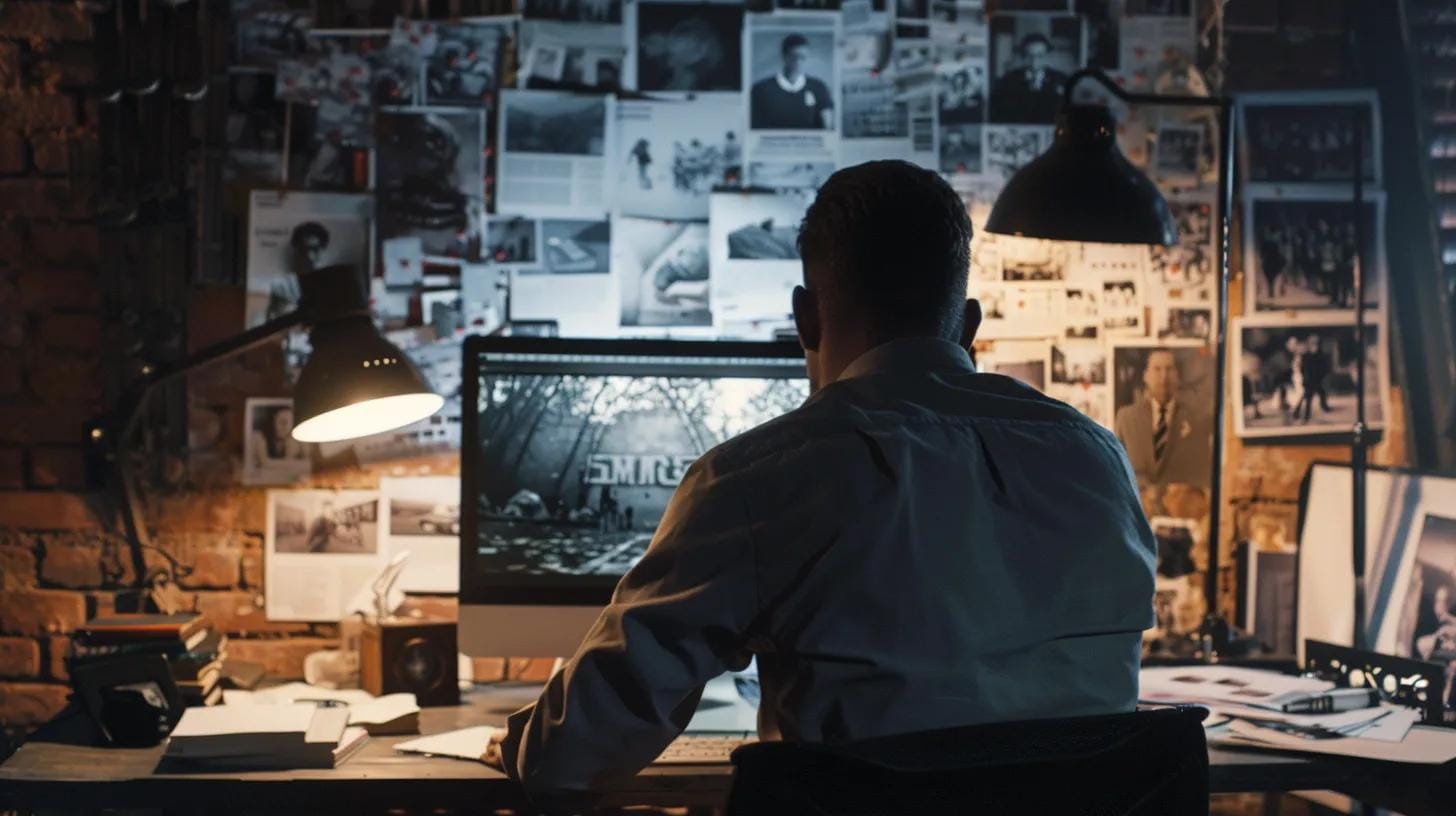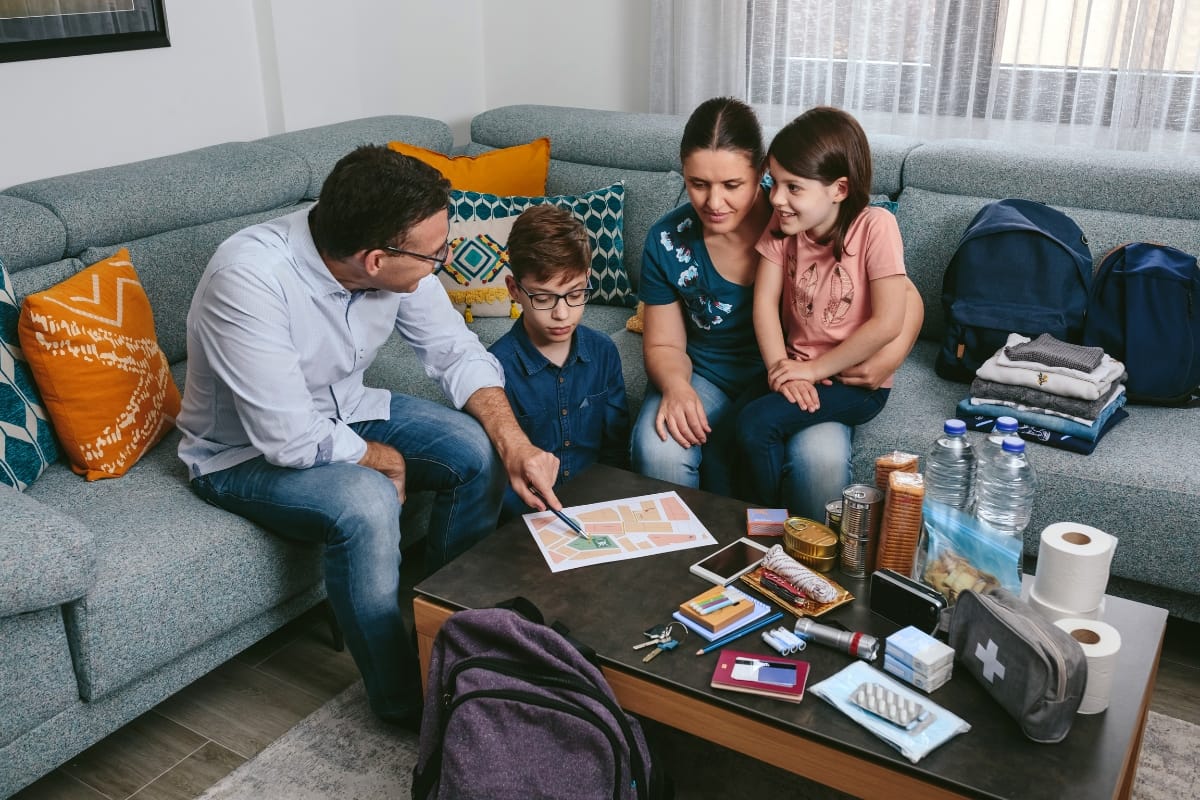Responsible firearm ownership begins with quality training—and for gun owners in Atlanta, mastering safe handling, storage, and legal awareness isn’t just a recommendation, it’s a critical responsibility. Whether you’re a first-time owner or looking to refine your skills, proper training builds confidence, ensures safety at home and in public, and helps you navigate Georgia’s specific self-defense and carry laws. In this guide, we’ll cover essential tips for selecting the right Atlanta firearm training courses, practicing consistently, and staying updated on best practices—because responsible gun ownership means being prepared, proficient, and proactive about safety at all times.
Master Safety and Accuracy with Atlanta Firearm Training
What Are the Key Basics of Firearm Safety Every Atlanta Gun Owner Should Know?
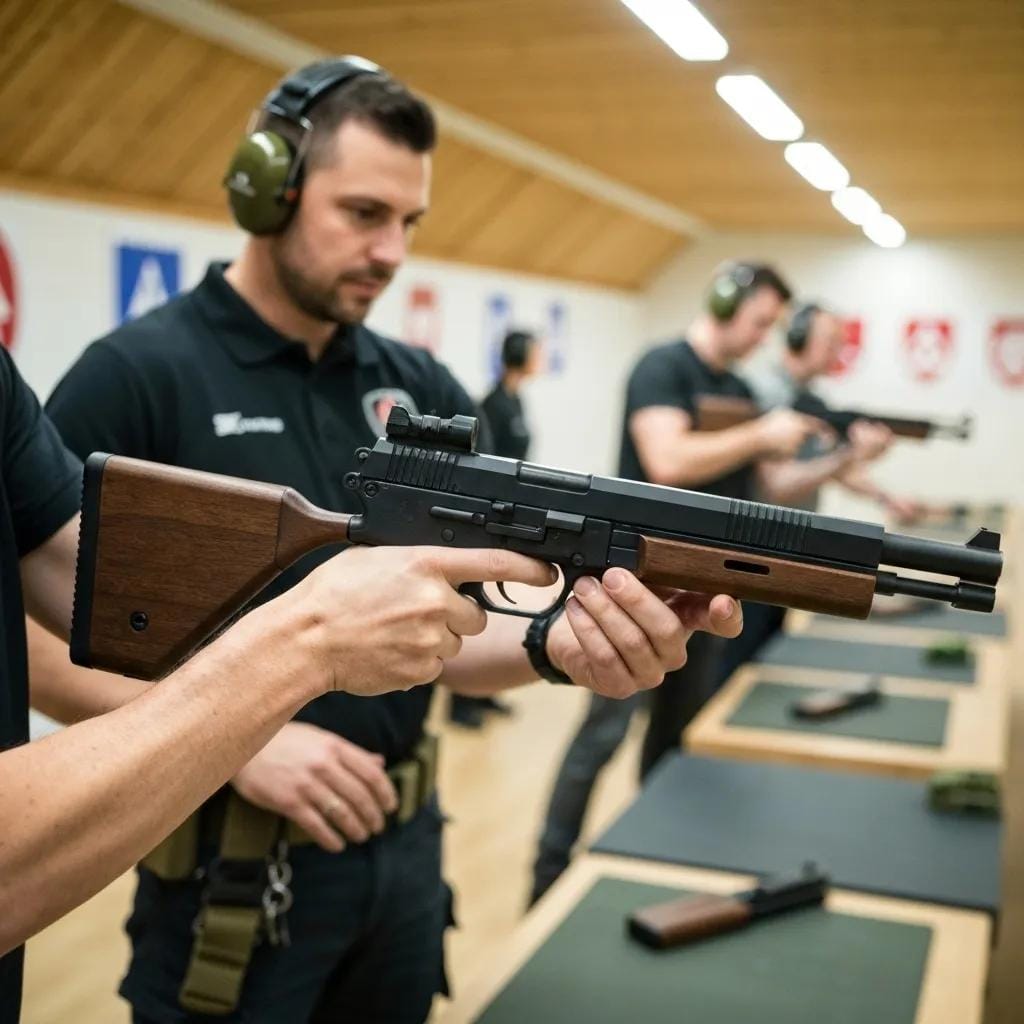
Firearm safety rests on three pillars: how you handle a gun, how you store it, and how aware you are of your environment. Treat those as daily habits rather than one-time lessons. In Atlanta, that means building routines that work at the range and at home. Clear handling protocols stop preventable mistakes, secure storage blocks unauthorized access, and steady awareness helps you make smart choices under pressure. Mastering the basics creates confidence and keeps everyone around you safer.
What Are The Essential Firearm Safety Rules For Beginners?
Start with the four rules and make them second nature. Treat every firearm as if it is loaded, even when you believe it is not. Keep the muzzle pointed in a safe direction so there is no chance of harming people or property if a mistake occurs. Rest your finger along the frame until you are ready to shoot, since early trigger contact is the fastest path to an unintentional discharge. Know your target and what sits in front of it and behind it, because bullets do not stop at your intentions. Repeat these points during dry practice, before live fire, and any time a firearm changes hands. Consistency turns guidelines into muscle memory.
How Should Responsible Gun Owners Practice Safe Storage And Handling?
Safe storage and daily handling work together. At home, store firearms unloaded inside a locked safe or cabinet, and keep the combination or key out of reach of children and visitors. Use a quality lock as a secondary layer if the gun will be unattended. Keep ammunition stored separately to reduce the chance of mishandling. When transporting to the range, secure the firearm in a locked case and place it away from passengers. Build a cleaning schedule that includes verifying the chamber is empty, field stripping per the manufacturer’s guidance, and inspecting springs, pins, and sights for wear. A clean, well maintained firearm runs more reliably and is easier to handle safely.
Why Is Situational Awareness Critical In Firearm Use?
Situational awareness is the habit of reading the room and the environment before you act. On the range, it means confirming who is forward of the line, where berms and backstops are located, and how weather or lighting might affect visibility. In everyday life, it means noting exits, potential cover, and the presence of bystanders before you consider any action. Awareness reduces bad decisions, helps you manage stress, and keeps safety at the front of your mind. Practice it during routine errands and range sessions so it becomes automatic when you need it most.
How Do Training, Local Laws, And Home Safety Fit Together?
Good training connects the rules to real skills. Seek instruction that covers safe draws, reloads, malfunctions, and secure storage, then keep practicing with a plan that includes dry fire and short, focused range visits. Stay current on Georgia and Atlanta regulations regarding carry, storage, transportation, and use of force, since legal changes can affect how you store and move your firearms. Round out your safety plan by maintaining the rest of your home environment. Test smoke and carbon monoxide alarms, label emergency shutoffs, and address household issues that can signal larger problems.
By turning these principles into everyday habits, Atlanta gun owners build a culture of safety that protects families, respects the community, and supports confident, responsible use.ting the right training course in Atlanta.
How Can You Choose the Right Firearm Training Course in Atlanta?
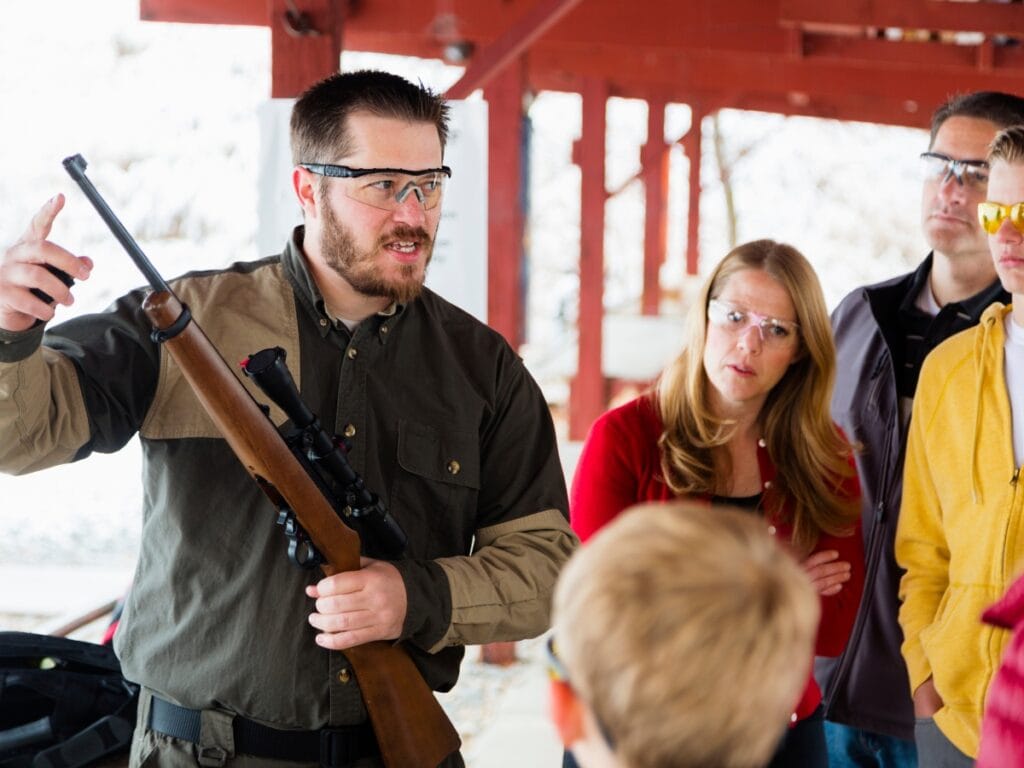
Picking the right class starts with clear goals. Decide whether you want a safety refresher, first-time instruction, better accuracy, or a defensive focus. From there, review each program’s objectives and make sure they match your needs. Instructor qualifications matter, so look for proven credentials and a track record of teaching beginners and experienced shooters. Class size affects the quality of coaching.
Smaller groups usually mean more individual feedback and more time on the line. A balanced curriculum should pair classroom theory with meaningful live-fire work so you leave with skills you can repeat on your own. Finally, consider schedule, location, and total cost, including range fees and ammunition. Aligning these details with your goals will help you get the most from Atlanta firearm training and set you up for advanced coursework later.
What Does Basic Pistol Training In Atlanta Cover For New Shooters?
A solid basics course builds safe habits and reliable technique. You will learn the four core safety rules, how to confirm an unloaded firearm, and how to handle a pistol at home and on the range. Foundational marksmanship follows, including a repeatable grip, stable stance, clean sight alignment, and smooth trigger press. Instructors introduce loading and unloading procedures and walk you through common malfunction drills so you can clear stoppages without guesswork. Range etiquette, target management, and simple practice plans round out the session. By the end, most students can place accurate shots at typical training distances and understand how to keep improving between classes.
What Are The Benefits Of Concealed Carry Classes And Georgia WCL Certification?
Concealed carry courses combine legal education with practical skill building. You will learn where carry is permitted, how use-of-force laws apply, and what to expect if a defensive incident must be reported. On the range, drills focus on safe presentation from concealment, consistent shot placement at close distances, and managing recoil while maintaining control. Instructors also coach situational awareness, verbal de-escalation, and safe storage practices at home and in vehicles. A clear overview of the Georgia Weapons Carry License process helps you prepare paperwork and understand reciprocity when you travel. Graduates leave with a strong legal foundation and the day-to-day skills required to carry responsibly.
When Should You Consider Tactical Firearms Training For Advanced Skills?
Tactical instruction makes sense once your fundamentals are consistent and you can safely manage a firearm under mild stress. These courses add movement, use of cover, and target transitions while maintaining accuracy. You may train in low light, work with handheld or weapon-mounted lights, and practice reloads and malfunction clears at higher speeds. Scenario-based exercises build decision-making, communication, and accountability for every round fired. This track is well-suited for security professionals, business owners with elevated risk, or private citizens who want a deeper skill set after mastering basic defensive work. A good program will scale the difficulty to your experience so you are challenged without sacrificing safety.
How Do You Build A Sustainable Training Plan After Your First Class?
Consistent practice keeps skills sharp. Create short sessions that focus on one or two elements, such as draw stroke efficiency or five-shot groups from concealment. Use dry practice at home to refine grip, sights, and trigger control, then confirm progress at the range with simple metrics like time to first shot and group size at common distances. Refresh your knowledge of local laws each year and schedule a check-in class to correct drift in technique.
Mix in courses that expand your capabilities, including medical training and safe storage strategies, so your overall preparedness grows with your shooting skill. With a clear plan and the right instruction, Atlanta firearm training becomes a steady path toward confidence, safety, and responsible ownership.
What Are the Legal Requirements and Georgia Gun Laws Responsible Owners Must Follow?
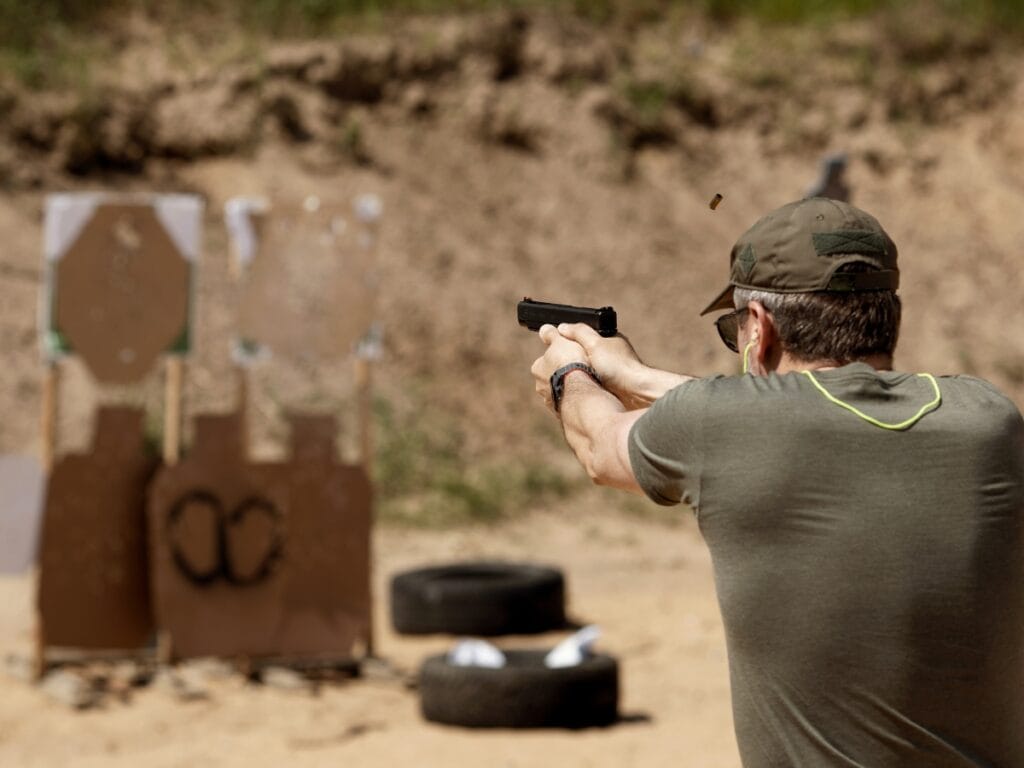
Responsible ownership starts with a clear grasp of state law. In Georgia, possession and carry rules focus on eligibility, where firearms may be taken, and how force may be used in self defense. Understanding these basics helps you avoid legal trouble and supports safe habits you can reinforce through Atlanta firearm training.
Georgia Weapons Carry License Basics
Georgia adopted permitless carry in 2022, which means most eligible adults may carry a handgun, openly or concealed, without a license. The Weapons Carry License is still available and remains useful, especially for travelers, since other states may honor it through reciprocity. To obtain a license, you apply through your county probate court, pass a state and federal background check, and meet eligibility standards that bar felons and certain prohibited persons. A training class is not required by Georgia law to receive the license, but structured instruction is strongly recommended so you build safe handling skills and understand where carry is lawful.
Where Carrying Is Restricted
Even with permitless carry or a WCL, some places remain off limits. Georgia law restricts firearms in locations such as K through 12 schools, courthouses, secure areas of airports, jails and prisons, and certain government buildings that screen for weapons. Private property owners can set their own rules and may lawfully ask you to leave if firearms are not permitted on the premises. Posted signs and verbal requests should be taken seriously. Houses of worship may restrict carry as well, so always confirm a site’s policy before you enter. If you transport a firearm, keep it secured and follow the venue’s check in procedures when required.
Use Of Force And Self-Defense Standards
Georgia recognizes the right to defend oneself against an imminent unlawful threat. You may use force when you reasonably believe it is necessary to prevent harm. Deadly force is limited to situations involving a threat of death, great bodily injury, or the commission of a forcible felony.
Georgia follows a stand your ground framework, which means there is no duty to retreat if you are in a place you have a right to be and you are not engaged in unlawful activity. The castle doctrine strengthens these protections in your home, vehicle, or place of business. Two ideas guide every decision: your perception must be reasonable, and your response must be proportional to the threat.
Practical Steps For Staying Compliant
Keep a government-issued ID with you when carrying, since law enforcement may need to confirm your eligibility. Store firearms so that unauthorized users do not gain access, especially in vehicles, where theft is common. Review local policies for parks, campuses, and special events, since rules can vary by location and by the type of screening in place. Finally, document your training, even though it is not mandatory. Certificates from reputable classes demonstrate that you take safety and legal compliance seriously.
How Integrated Security And Emergency Response Elevate Firearm Training
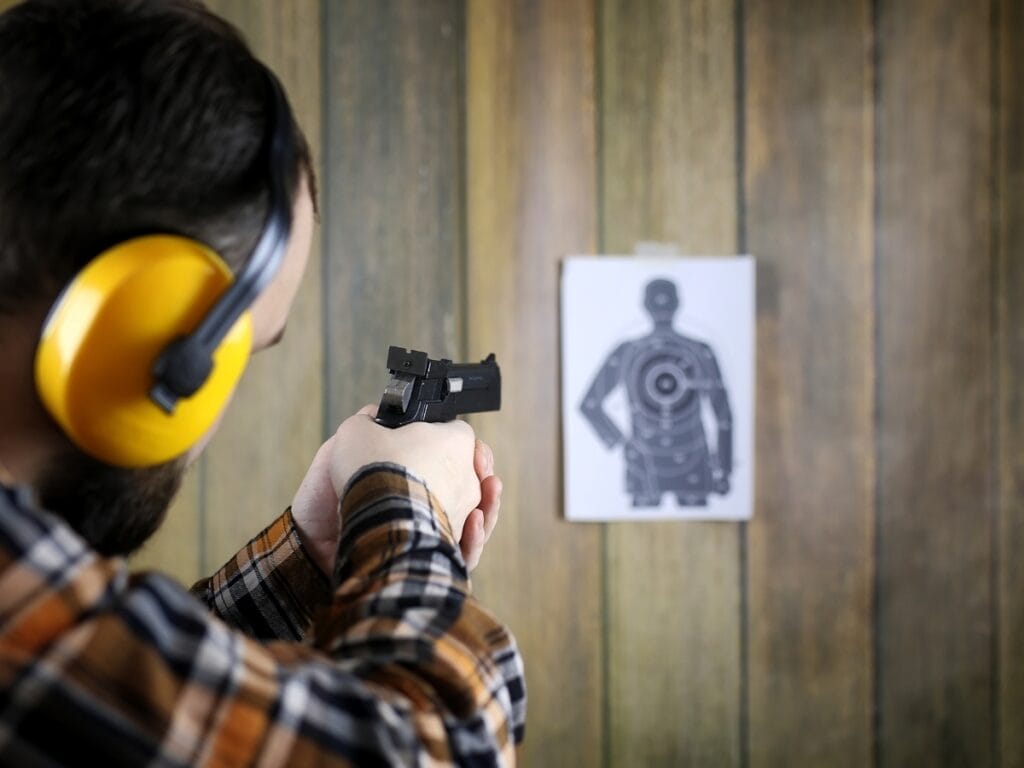
Firearms skills matter, but they are only one part of real-world readiness. When you combine security principles with emergency medical response, you get a complete plan for prevention, decision making, and post-incident care. This approach helps you spot risks sooner, act with a clear process under stress, and stabilize injuries until help arrives. For anyone pursuing Atlanta firearm training, weaving these pieces together turns range drills into practical resilience.
What Is Active Shooter Awareness And Response For Individuals And Businesses?
Active shooter training teaches people how to read early warning signs, map exits, and move with purpose. It covers when to evacuate, when to barricade, and how to communicate location and headcount to dispatch or on-site security. Participants practice simple, repeatable actions like locking doors, controlling sightlines, and guiding others to safer rooms. Businesses benefit from site-specific walk throughs that test badge access, camera coverage, and intercom instructions. After each drill, a short debrief captures what worked, what failed, and which policies need revision, so readiness improves with every repetition.
Why Tactical First Aid Belongs In Every Training Plan
Stopping the threat is not the finish line. Tactical first aid gives gun owners the tools to keep someone alive in the critical minutes before EMS arrives. Core skills include applying a tourniquet high and tight, packing junctional wounds, sealing chest injuries, and managing airway and shock. A compact kit with a tourniquet, hemostatic gauze, chest seals, and gloves should be as routine as eye and ear protection. Scenario practice matters here too. Running a short drill where one person secures a room while another treats a simulated bleed builds muscle memory and clarifies roles, which is exactly what you need when stress spikes.
How Security Guard Qualification Strengthens Personal Skill
Security guard firearm qualification demands accuracy, judgment, and consistency on a timer. That structure benefits private citizens as well. Courses of fire expose weaknesses in draw stroke, trigger control, and target transitions, then measurable standards push steady improvement. Equally important, qualification frameworks reinforce safe movement, clear verbal commands, and a solid understanding of use of force. Adding judgment drills, such as shoot or no shoot targets with changing prompts, ties legal knowledge to marksmanship in a way that daily practice alone rarely achieves.
Building A Cohesive Training Program In Atlanta
A strong plan blends classroom learning, live fire, medical skills, and site-specific security checks. Start with a baseline handgun class that cements grip, stance, sights, and trigger control. Add a block on Georgia self defense law and safe storage, then schedule an active shooter walk through at your home or workplace. Follow with a hands-on medical workshop that includes tourniquet reps and wound packing, and finish the cycle with a timed qualification that sets clear performance goals for the next quarter. Keep records of each session, rotate through daylight and low light practice, and review equipment at least twice per year to confirm reliability.
Integrated training builds confidence you can trust. By pairing Atlanta firearm training with security planning and tactical first aid, you create layered protection for yourself, your family, and your team. The result is a calm, capable response when seconds count.
Where Can You Find Expert Instructors and Support for Atlanta Firearm Training?
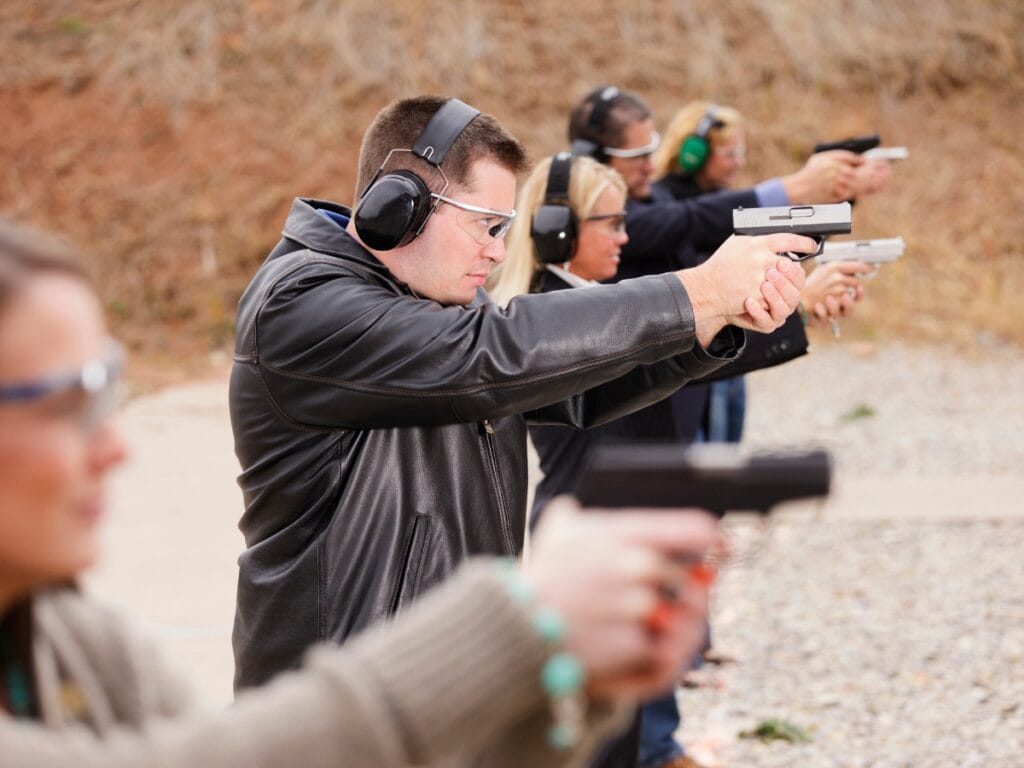
Finding the right coach is the fastest way to turn safe handling and accurate shooting into habits. Strong programs pair clear classroom instruction with structured range time, then reinforce lessons with simple drills you can repeat at home. When you evaluate options for Atlanta firearm training, focus on instructors who explain why a technique works, demonstrate it cleanly, and give direct feedback you can use on your next rep.
What Credentials And Experience Should You Look For?
Certifications signal that an instructor follows tested curricula and current best practices. NRA and USCCA credentials are widely recognized, but paper alone is not enough. Ask about recent continuing education, range safety history, and experience teaching new shooters as well as intermediate students. A good fit is a teacher who can break down stance, grip, sights, and trigger control in plain language, then adjust the approach for your build, your goals, and your preferred platform.
Who Teaches At 4Horsemen Investigate?
4Horsemen Investigate fields a team of NRA-certified and USCCA-certified instructors who bring backgrounds in law enforcement, military service, and competitive shooting. That mix matters because it blends real call experience with match proven mechanics. In practice, students get balanced coaching that covers safe handling, marksmanship under time pressure, and judgment skills that connect legal knowledge with live fire. Classes are kept small enough for one on one corrections, which helps you fix issues with grip tension, sight picture, or trigger press before they turn into habits.
How Do Quality Programs Structure Training And Support?
Effective courses follow a clear arc. Instruction starts with safety rules and range procedures, then moves into dry work that builds grip and trigger control without the noise of recoil. Live fire begins at short distance to confirm fundamentals, then expands to controlled strings that test cadence, reloads, and malfunctions. Good programs include short debriefs, simple homework drills, and guidance on gear so you know which changes to make first. Ongoing support can include refresher sessions, low light modules, and practice standards that let you track progress across seasons.
What Facilities And Equipment Should You Expect?
Safe ranges are non negotiable. Look for clear firing lines, visible medical gear, and staff who run hot and cold procedures with consistency. Reliable loaner firearms and eye and ear protection help new shooters start without a big upfront spend. Targets should allow you to read hits at a glance so you can diagnose height over bore, trigger freeze, or low left patterns without guesswork. If a class uses shot timers, even better, since measured reps show whether a change actually improves performance.
How Can You Prepare For Your First Class?
A few simple steps go a long way. Review basic safety rules, practice a steady presentation with an unloaded firearm, and confirm that your holster covers the trigger and holds the gun securely. Pack water, a brimmed hat, and weather layers. If you track eyesight changes, bring clear and tinted lenses so you can see sights in varied light. After class, write down two wins and two fixes. Bring that note to your next session and ask your instructor to pressure test those points at realistic speeds.
Choosing With Confidence
Atlanta firearm training works best when expert instruction, safe facilities, and steady practice align. With certified coaches like those at 4Horsemen Investigate and a plan that mixes fundamentals, legal awareness, and measured benchmarks, you build skill that holds up when it counts.
Conclusion
Responsible firearm ownership extends beyond safe handling—it requires ongoing training, legal awareness, and a commitment to situational readiness. At 4Horsemen Investigation & Security, our certified instructors provide expert-led Atlanta firearm training tailored to both new and experienced owners, emphasizing safety, precision, and real-world preparedness. Elevate your skills with confidence: Call 404-680-0860 or visit our website to schedule your free consultation. Whether for personal defense or professional development, trust 4Horsemen to equip you with the knowledge and discipline that responsible ownership demands.

